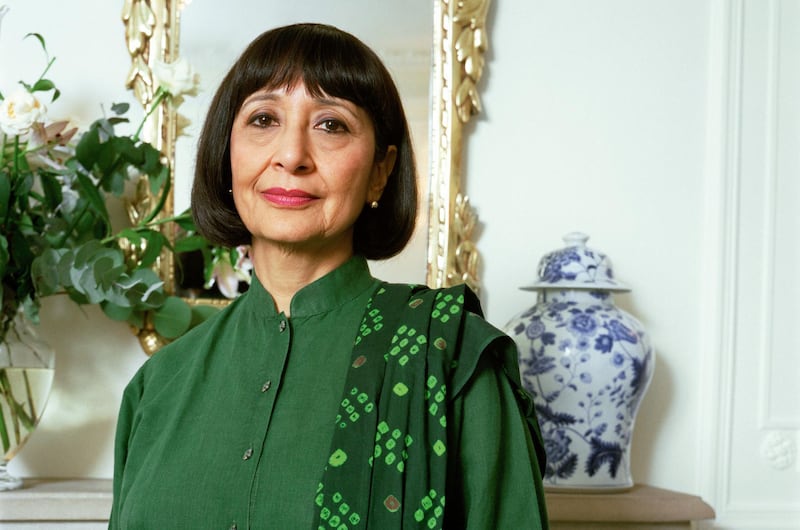Maybe Donald Trump's son-in-law Jared Kushner should have visited the Emirates Airline Festival of Literature in Dubai. Mr Kushner has been tasked by US President Donald Trump with one of the world's most difficult jobs – peace in the Middle East. Let's hope he succeeds. But at a supposedly private session with Congressional interns on Capitol Hill last year, Mr Kushner was surreptitiously recorded saying: "We don't want a history lesson. We've read enough books. Let's focus on how do you come up with a conclusion to the situation." Now, of course, it seems odd that anyone in a position of leadership, even the semi-detached Mr Kushner in the fact-averse Trump White House, should find that books somehow get in the way of finding "a conclusion" to any situation, especially in the Middle East. Last week, surrounded by enthusiastic readers of all ages in Dubai, I was more interested in the idea that anyone can claim to have read "enough books", whatever that might mean. Most of us realise that we can never read enough and that's one reason why literary festivals are increasingly popular. We go to listen, learn, ask questions and have fun. That idea brought together those in Dubai who thronged to hear the children's author David Walliams and prizewinning writers like Kate Mosse and Kamila Shamsie or attend masterclasses on everything from travel writing and journalism to drawing comic strips and self-publishing. And if you were tired of all that, you could have had dinner with the cookery book-writing top chefs Madhur Jaffrey or Kenneth Hom and picked up some culinary tips.
Emirates litfest reminds us that book events and literary festivals are for everyone. Books themselves are making a comeback after a very difficult period for the publishing industry. A few years ago, some prophesied that traditional books were heading for extinction; that the "dead trees" product would be killed off by Kindle and similar electronic devices. But at the Wigtown Book Festival in the south of Scotland last autumn, I noticed the local bookshop had displayed on the wall an old version of a Kindle, peppered with holes from a shotgun. The sign beneath the pellet-riddled device suggested that in this bookshop, Kindle's assassination would not be mourned. Personally, I do not care how people read or even what they read. Kindle, books, magazines, trashy stories, comic books, high literature, poetry, non-fiction – all have their place. The key is to encourage people, especially children, to start the reading process.
At a primary school in the US state of Mississippi, I once filmed with an inspirational headteacher, who told me she could tell almost immediately which children aged five would do well later and which would fall behind. The key determinant was how many books the family had at home. Some grew up in households with no books whatsoever. But once a home had at least a dozen books which someone in the family read, no matter how poor the family might appear to be, the headteacher could be fairly confident the child would thrive. Those children who had plenty of books at home could begin school with a head start. They understood immediately that in a book with a picture of a duck and the corresponding word, both the word and picture were related. Sadly, other children in homes with no books simply did not understand that the word and the picture meant the same thing. Schoolteachers do remarkable work but a child who turns up at school on day one in Mississippi or Manchester or Mumbai without some idea of what books can do in their lives is a child in need of a miracle. Or a hero. And one of my heroes is the American singer Dolly Parton. She set up the Imagination Library offering free books to children under the age of five. As Ms Parton puts it: “When I was growing up in the hills of east Tennessee, I knew my dreams would come true. I know there are children in your community with their own dreams. They dream of becoming a doctor or an inventor or a minister. Who knows, maybe there is a little girl whose dream is to be a writer and singer.”
Books, Ms Parton believes, provide the first step on a long journey to fulfil those dreams. Books break the cycle of ignorance. That's why literary festivals are so important and so successful and why leaders who do not read books but prefer to watch television should be treated with suspicion. So may I humbly suggest that as more and more of Mr Trump's appointees are fired or abandon the administration, with Mr Kushner's own role now apparently under a cloud, perhaps the President could fill one of the gaps by offering Ms Parton a job in his cabinet, maybe replacing the current education secretary. Ms Parton's charity has distributed 100 million books so far in a mission to Make America Read Again. In the UAE, Dubai's Ruler, Sheikh Mohammed bin Rashid, is planning to match that number by donating 100 million books to school libraries to mark the UAE's Month of Reading. They do it, as Dubai litfest's slogan puts it, "for the love of words".
Gavin Esler is a journalist, television presenter and author





